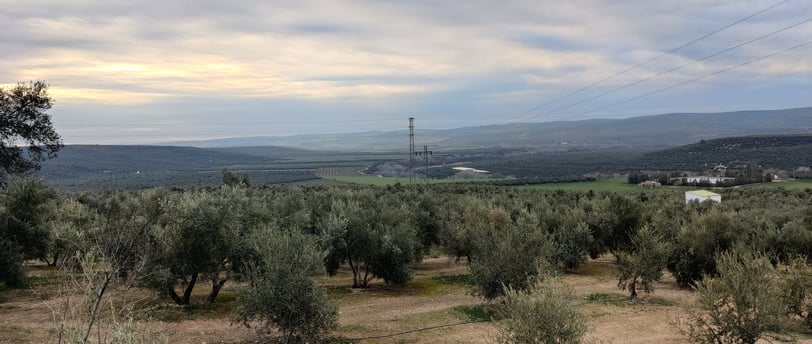Olive Oil Sustainability: Our Commitment to Eco-Friendly Olive Farming
EVOO MANUFACTURING PROCESS
2 min read


Introduction:
In an era marked by increasing environmental concerns, sustainable agriculture practices have become imperative for preserving our planet's health and vitality. As custodians of the land, olive farmers play a pivotal role in nurturing ecosystems while producing the beloved fruit that graces our tables and enriches our lives. In this article, we delve into the principles of sustainable olive farming and our unwavering commitment to eco-friendly agriculture.
Understanding Sustainable Olive Farming:
Sustainable olive farming encompasses a holistic approach to cultivation that seeks to minimize environmental impact, conserve natural resources, and promote biodiversity. Key principles include:
1. Soil Health:
Adopting practices such as cover cropping, composting, and minimal tillage to enhance soil fertility and structure, thereby reducing erosion and improving water retention.
2. Water Conservation:
Implementing drip irrigation systems, rainwater harvesting, and mulching techniques to optimise water use efficiency and minimise irrigation runoff.
3. Biodiversity Preservation:
Creating habitat corridors, planting native vegetation, and avoiding monoculture to support diverse ecosystems, enhance pollination, and mitigate pest pressure.
4. Integrated Pest Management:
Employing natural predators, beneficial insects, and cultural practices to control pests and diseases, minimising reliance on synthetic pesticides and herbicides.
Our Eco-Friendly Practices:
We are deeply committed to sustainable agriculture practices that prioritise environmental stewardship and long-term viability. Our eco-friendly initiatives include:
1. Organic Certification:
Our olive groves are certified organic, ensuring that no synthetic chemicals or genetically modified organisms are used in the cultivation process. This commitment to organic farming promotes soil health, biodiversity, and consumer health.
2. Renewable Energy:
We harness solar power to meet our energy needs, reducing reliance on fossil fuels and minimising carbon emissions. By investing in renewable energy infrastructure, we strive to reduce our environmental footprint and promote energy independence.
3. Water Stewardship:
Through efficient irrigation practices and water conservation measures, we minimise water usage and protect local water resources. Additionally, we implement soil moisture monitoring systems to optimise irrigation scheduling and prevent water waste.
4. Erosion Control:
To prevent soil erosion and preserve valuable topsoil, we employ erosion control techniques such as contour planting, terracing, and the use of cover crops. These practices safeguard soil health and maintain ecosystem resilience.
Conclusion:
As stewards of the land, it is our responsibility to cultivate olive groves in harmony with nature, preserving the integrity of the environment for future generations. Through sustainable farming practices, we not only produce high-quality olives and olive oil but also contribute to the health and well-being of ecosystems and communities. By embracing eco-friendly agriculture, we pave the way for a more resilient, regenerative future, where the bounty of the olive tree coexists harmoniously with the natural world.
